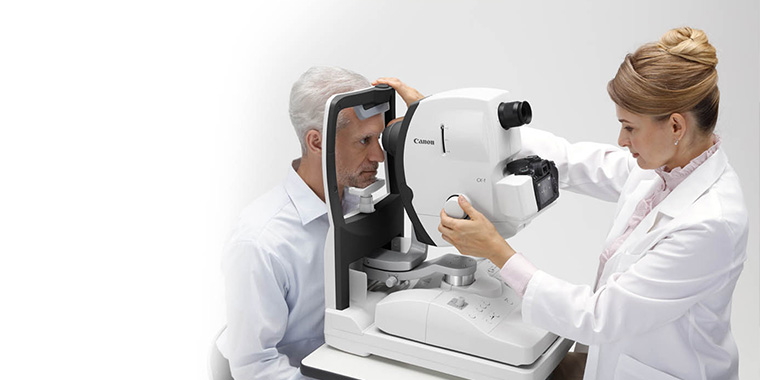Is Refractive Surgical Procedure Right for You? Factors to Take Into Consideration for Better Eyecare
In the realm of eye treatment, the choice to undergo refractive surgery is a substantial one that requires thoughtful consideration. From the complexities of one's eye wellness to the intricacies of daily practices and personal assumptions, each facet holds significance in the broader landscape of refractive surgery candidacy.
Eye Health Assessment
When thinking about refractive surgical procedure, a thorough eye health and wellness examination is crucial to assess the suitability of the procedure for each individual. andalusia pediatrics. This examination entails a collection of tests and assessments conducted by an eye care professional to determine the total wellness of the eyes, the existence of any type of underlying problems, and the security of the refractive error
During the analysis, different factors are taken into consideration, such as the patient's clinical history, present eye prescription, corneal thickness, pupil dimension, and tear film top quality. These evaluations aid to determine any kind of contraindications to refractive surgical procedure, such as corneal irregularities, cataracts, or untreated eye infections. Furthermore, the evaluation assists to manage individual assumptions concerning the potential results of the surgical procedure based on their one-of-a-kind eye qualities.
Eventually, the eye wellness evaluation is important in guaranteeing the security and performance of refractive surgery, as it provides important understandings right into the person's eye wellness status and assists figure out one of the most ideal therapy options for accomplishing optimum aesthetic outcomes. (eye center andalusia)
Way Of Living Assessment
An extensive way of life evaluation is important in establishing the viability of refractive surgical procedure for a person's aesthetic modification demands. Way of living factors such as occupation, hobbies, and daily activities play an important function in the decision-making procedure pertaining to refractive surgery. People with occupations that involve a high degree of physical task or direct exposure to ecological aspects may have different visual requirements compared to those with sedentary desk tasks. Recognizing just how a person's way of life might affect their vision post-surgery is important for handling expectations and making sure ideal results.
Moreover, way of living routines such as sporting activities participation, exterior activities, and even skin care routines can affect the healing procedure and overall success of refractive surgical procedure. As an example, individuals that engage in call sports might need to take extra precautions to protect their eyes during the healing duration. Furthermore, individuals with considerable sun exposure might call for added post-operative care to avoid issues. By performing an extensive way of life analysis, eye treatment professionals can tailor their recommendations and treatment plans to satisfy the special needs of each client, eventually leading to improved aesthetic end results and complete satisfaction.
Expectation Placement

Clients require to comprehend that while several people accomplish 20/20 vision or better complying with refractive surgery, some might other still call for glasses for specific activities like reading or driving at evening. Handling these assumptions helps stop disappointment and frustration post-surgery, leading to a more positive total experience for the patient.
Danger Evaluation

Factors that might enhance the threat of issues include age, specific medical problems like autoimmune illness, unstable vision prescription, slim corneas, and impractical person assumptions. Additionally, choosing a experienced and competent surgeon, following pre and post-operative care guidelines diligently, and disclosing any kind of relevant clinical background can assist mitigate dangers.
To minimize the possibility of issues, eye doctors carry out thorough pre-operative analyses to identify any type of contraindications to surgery. They also review the possible dangers and advantages with individuals during the appointment process. By involving in open interaction and shared decision-making, both the client and the eye doctor can work together to determine if refractive surgical procedure is the right selection based on private risk accounts and desired outcomes.
Consultation Importance
Thinking about the vital function of notified decision-making in evaluating risks and potential difficulties in refractive surgical procedure, the appointment procedure holds considerable significance in directing clients towards optimum end results. During the assessment, the ophthalmologist reviews the person's eye health and wellness, refractive errors, and total viability for surgical treatment. This initial analysis is vital in figuring More about the author out the most ideal treatment for each individual, considering variables such as corneal density, student dimension, and existing eye conditions.
Moreover, the appointment functions as a chance for individuals to discuss their expectations, worries, and any type of questions they might have relating to the surgical treatment. Clear communication in between the individual and the specialist is vital to make sure reasonable expectations and a thorough understanding of the possible dangers and benefits entailed.
Additionally, the consultation permits the specialist to discuss the different medical options readily available, their corresponding end results, and the post-operative care called for. This extensive discussion encourages individuals to make well-informed choices concerning their eye care, bring about much better fulfillment and results post-surgery.
Conclusion
In final thought, individuals thinking about refractive surgical treatment must undertake an extensive eye health and wellness evaluation, analyze their way of life behaviors, align their expectations with prospective outcomes, examine the associated threats, and prioritize appointments with eye care professionals. These variables play a critical duty in figuring out the suitability of refractive surgical procedure for each and every person, making sure optimal outcomes and fulfillment with the procedure.
Patients thinking about refractive surgery frequently have high expectations concerning the results, expecting perfect vision without the need for glasses or contact lenses. While refractive surgical procedure can substantially boost vision and minimize reliance on look at this site visual help, it is critical for people to recognize that results may differ based on specific aspects such as the level of refractive error, corneal density, and total eye health and wellness.
By engaging in open interaction and shared decision-making, both the person and the eye doctor can function together to determine if refractive surgery is the appropriate option based on individual threat accounts and preferred outcomes.
Taking into consideration the essential duty of educated decision-making in evaluating risks and prospective problems in refractive surgery, the consultation process holds considerable importance in leading patients in the direction of optimal end results. During the assessment, the eye doctor reviews the client's eye wellness, refractive mistakes, and total viability for surgery.